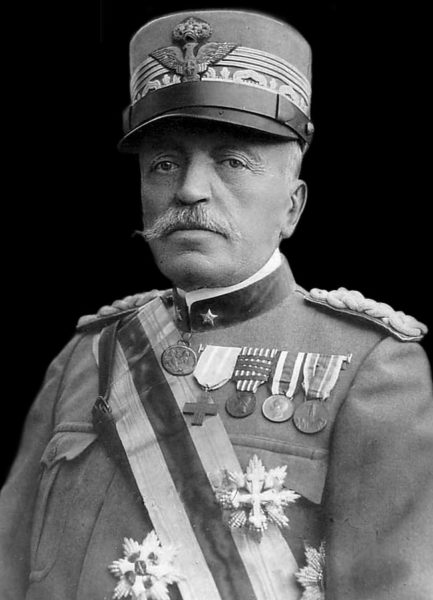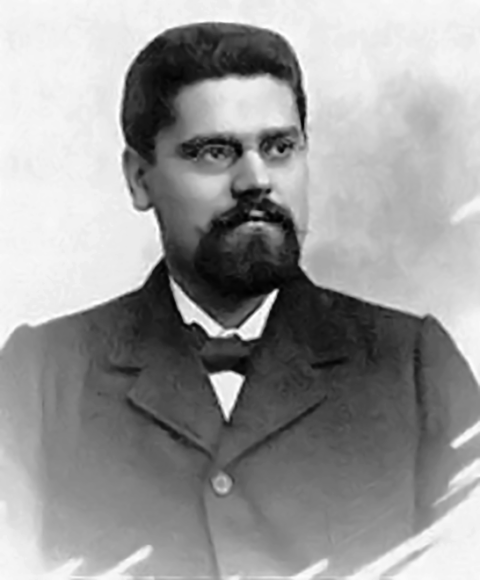World War Two
Published 4 Dec 2021The Soviets have launched offensives on the entire eastern front and by now hundreds of thousands of men are surrounded at Stalingrad. The Japanese win a battle at sea, but are losing a war of attrition.
(more…)
December 5, 2021
Axis Armies Facing Starvation – WW2 – 171 – December 4, 1942
December 3, 2021
The Battle of the Trebia River (218 B.C.E.)
Historia Civilis
Published 12 Jun 2015Patreon | http://historiacivilis.com/patreon
Donate | http://historiacivilis.com/donate
Merch | http://historiacivilis.com/merch
Twitter | http://historiacivilis.com/twitter
Website | http://historiacivilis.comMusic is Beethoven’s “Sonata No. 11 in B Flat Major Op. 22” – I. Allegro con brio. Performed by Daniel Veesey
November 29, 2021
November 26, 2021
The Germans Learn to Love Their Slaves – WAH 047 – November 1942, Pt. 2
World War Two
Published 25 Nov 2021In November 1942 the resistance fight in many parts of Europe becomes a part of the regular military war. In Germany, the Germans discover humanity while the German mass murders see no end.
(more…)
Look at Life — Air Umbrella (1961)
PauliosVids
Published 20 Nov 2018A look at NATO’s international squadrons, with footage of the F104 Starfighter.
November 24, 2021
Tank Chats #133 | Renault UE Chenillette | The Tank Museum
The Tank Museum
Published 6 Aug 2021In this weeks Tank Chat, Curator David Willey talks about the Renault UE Chenillette. A light tracked armoured carrier produced by France between 1932 and 1940.
Support the work of The Tank Museum on Patreon: ► https://www.patreon.com/tankmuseum
Visit The Tank Museum SHOP & become a Friend: ► tankmuseumshop.orgTwitter: ► https://twitter.com/TankMuseum
Instagram: ► https://www.instagram.com/tankmuseum/
#tankmuseum #tanks
November 14, 2021
Axis and Allies Both Invade France – WW2 – 168 – November 13, 1942
World War Two
Published 13 Nov 2021Operation Torch goes off this week, the Allied invasion of French Northwest Africa, but this prompts the Germans to invade Vichy France. This is the Allies’ first combined major offensive in the Western Hemisphere. The Germans launch another offensive of their own this week, though — Operation Hubertus in Stalingrad. And in the South Pacific, a major naval battle begins off Guadalcanal.
(more…)
November 13, 2021
How Mussolini Founded The Italian Fascist Party I THE GREAT WAR 1921
The Great War
Published 12 Nov 2021Sign up for Curiosity Stream and get Nebula bundled in and SAVE 26%: https://curiositystream.com/thegreatwar
Benito Mussolini’s National Fascist movement was a fringe phenomenon right after the First World War and couldn’t gain much traction in the 1919 elections. But soon after Mussolini was increasing his political standing and the National Fascist Party gained more members than ever before.
» SUPPORT THE CHANNEL
Patreon: https://www.patreon.com/thegreatwar» OUR PODCAST
https://realtimehistory.net/podcast – interviews with World War 1 historians and background info for the show.» BUY OUR SOURCES IN OUR AMAZON STORES
https://realtimehistory.net/amazon *
*Buying via this link supports The Great War (Affiliate-Link)» SOURCES
Alcalde, Ángel, War Veterans and Fascism in Interwar Europe, (Cambridge: Cambridge University Press, 2017)Bosworth, R. J. B., Mussolini, (London: Bloomsbury Academic, 2010)
De Grand, Alexander, Italian Fascism: Its Origins & Development, (Lincoln, NB: University of Nebraska Press, 1989)
Duggan, Christopher, Force of Destiny: A History of Italy since 1796, (London: Penguin Books, 2008)
Martins, Carlos Manuel, From Hitler to Codreanu: The Ideology of Fascist Leaders, (London: Routledge, 2020)
Neville, Peter, Mussolini, (London: Routledge, 2004)
Weyland, Curt, Assault on Democracy: Communism, Fascism, and Authoritarianism During the Interwar Years, (Cambridge: Cambridge University Press, 2021)
» MORE THE GREAT WAR
Website: https://realtimehistory.net
Instagram: https://instagram.com/the_great_war
Twitter: https://twitter.com/WW1_Series
Reddit: https://reddit.com/r/TheGreatWarChannel»CREDITS
Presented by: Jesse Alexander
Written by: Jesse Alexander
Director: Toni Steller & Florian Wittig
Director of Photography: Toni Steller
Sound: Toni Steller
Editing: Jose Gamez
Motion Design: Philipp Appelt
Mixing, Mastering & Sound Design: http://above-zero.com
Maps: Daniel Kogosov (https://www.patreon.com/Zalezsky)
Research by: Jesse Alexander
Fact checking: Florian WittigChannel Design: Yves Thimian
Contains licensed material by getty images
All rights reserved – Real Time History GmbH 2021
November 12, 2021
Armored Vehicles of Operation Torch Pt. 1, by the Chieftain
World War Two
Published 11 Nov 2021Chieftain returns to the North African theatre to talk us through the armored fighting vehicles in action around the time of Operation Torch. This episode is part one of two with Chieftain covering the German and Italian vehicles. Here, Chieftain looks at everything from the fearsome Tiger to the nemesis of LRDG: the Sahariana.
(more…)
October 31, 2021
Nazi General Dies of Heart Attack – WW2 – 166 – October 30, 1942
World War Two
Published 30 Oct 2021The Allies may be on the verge of a breakthrough in North Africa, but they’re losing at sea to the Japanese this week, and the Axis are also advancing in the Caucasus, though the street by street struggle at Stalingrad continues as always.
(more…)
October 28, 2021
There are bad generals, there are evil generals, and (in a class of his own) there’s Luigi Cadorna
Earlier this month, Bret Devereaux took the time to give WW1 Italian general Luigi Cadorna the attention he richly deserved as the worst general of that war (which also included the strong Austrian contender Conrad von Hötzendorf), and certainly must be considered to be in the running as the worst general in military history:

Luigi Cadorna, Marshal of Italy, Chief of Staff of the Italian Army, 1914-1917.
Photo via Wikimedia Commons.
This week we’re going to break from our normal fare and take a bit of a lark. I thought I ought to substantiate the nearly endless shade towards Luigi Cadorna, Italian Army Chief of Staff from 1914-1917 (though I realize after writing this that what I actually ought to have done is just told the same bad joke about Cadorna 11 times in a row and let that stand as the explanation). I said that Cadorna was my pick for the worst general of World War I. Now, as I noted at the time, there is some stiff competition for that position. While I argued that the tactical problem of trench warfare probably wasn’t solvable by any general, that doesn’t mean that some generals didn’t perform better than others under the difficult conditions imposed by the stalemate.
Now I should be clear here what I mean by “worst general”. What I am assessing here is the fellow who was worst at generaling, rather than the worst human being who happened to be a general. That latter prize probably goes to İsmail Enver Pasha, Ottoman Minister of War from 1914 to 1918, a vain, arrogant strutting sort of man who not only utterly botched the only battle in which he commanded directly (Sarikamish, Dec. 1914 – Jan 1915) but who also then blamed his defeat (falsely) on the Armenians and subsequently instigated and played a key role in the Armenian genocide. He then sold his services to the Soviets, before betraying them to side with the Basmachi movement, which didn’t go particularly well either.
We are also here not investigating to see which WWI leader made the single worst decision. As I’ve noted before, the worst decision in the First World War was having a First World War, though the responsibility for that is diffused across multiple different leading figures.
Luigi Cadorna didn’t, to my knowledge, perpetrate any genocides, though as we’ll see, he was cruel and unreasonable. Nor did he bring Italy to war. The son of Count Raffaele Cadorna (who had led the army which captured Rome, completing the unification of Italy), Cadorna’s political connections, particularly to the king Victor Emmanuel III, made him functionally impossible to remove from command after he was made chief of staff in 1914. For his part, Cadorna seems to have spent about as much time fighting a political battle in Rome as he did fighting the actual war on the Isonzo; Cadorna insisted at the outset that he would only accept the job if he was given unfettered, complete authority. As we’ll see, that complete authority is not going to come with complete responsibility for outcomes. But in any event, this is a good illustration of Cadorna’s personality: bitter, arrogant and callous, but with a cruel authoritarian streak and a profound conviction that all of his mistakes were someone else’s fault.
[…] Cadorna has a small, fragile and relatively weak army to work with. Conscription would eventually put millions more Italians in the ranks (and slowly make the equipment situation less of a disaster), but of course everyone else was doing that too and even then it was clear from a simple exercise in demography that Italy’s manpower reserves were likely to be brittle. An equally simple exercise in economic statistics would suggest that while Italy’s army might be made minimally sufficient in equipment (the Italians eventually end up deploying well over a thousand artillery pieces on the Isonzo front, though the quality of their artillery never matched what was available on either side of the Western Front), it would never be excellent. Strategically then, Cadorna had the one army; it was small and weak and it was also effectively all Italy had. Moreover Italy, only recently unified (recall, Cadorna’s father had been directly involved!) was still politically fragile itself and might not take well for horrible casualties. So Cadorna’s army had to be husbanded carefully, spent only in great need and for great benefit.
Instead of doing literally any of that, Cadorna opted to pursue the highest operational tempo of any front of the war. I can’t stress this enough: between May 1915 and October 1917, the French launched (or supported) four offensives (Second Artois, Third Artois/Second Champagne/Loos, the Somme and the Nivelle Offensive; I’m not counting Second Arras as that was a Commonwealth operation in which the French had little part), plus being on the defensive at Verdun. Of course there were lots of minor operations too, but that’s five major operations on the Western Front, where the French were almost totally focused. In contrast, in that same time frame, Cadorna – who again, has the smallest, weakest major army – launches eleven (11)(eleven)(XI)(1011)(I𐤗)(ΙΑ)(eleven!?!) offensives on the Isonzo River.
[…]
Because Cadorna thought that discipline and morale were the key components of victory (and also because he seems to have just generally been a cruel, uncaring and authoritarian person) he attempted to enforce both in his army through coercion and cruelty. Cadorna executed around 750 men for cowardice (to my knowledge the highest rate in any army of the war), presided over a military justice regime that convicted something like 3.6% of his army of one disciplinary charge or the other. He dismissed an incredible total of 217 officers during his tenure, frequently because he felt they were not committed enough or aggressive enough and when his army began to fall apart at Caporetto, he ordered the summary execution of officers whose units retreated. It turns out that actually adopting a “the beatings will continue until morale improves” command style does not actually improve morale.
October 24, 2021
Showdown at El Alamein – WW2 – 165 – October 23, 1942
World War Two
Published 23 Oct 2021Could this be the beginning of the big break in North Africa? The Allies have the men, the armor, and the fuel … they just have to deal with the Axis minefields to try and get started. And the Axis are throwing ever more men at Stalingrad as the Soviets grimly hold on. Another roller coaster of a week.
(more…)
October 13, 2021
A War Without Hate? – The Officers and Gentlemen of North Africa – WW2 – Gallery 05
World War Two
Published 12 Oct 2021In the history of European-style warfare, there has always been the ideal of “rules of warfare”. The horrors of the Eastern Front and the Pacific prove how hollow this ideal can be, but there is one theatre where some officers are trying to maintain it: North Africa.
(more…)
October 12, 2021
Pesto — You Suck At Cooking, episode 73
You Suck At Cooking
Published 28 Mar 2018The YSAC Cook Book is now available: http://hyperurl.co/yousuckatcooking
Pesto. It’s the besto.
http://instagram.com/yousuckatcooking
https://twitter.com/yousuckatcookin
Snapchat: @yousuckatcookin2 cups basil
Half cup olive oil
half cup parmesan
couple spoonfuls of pine nuts (you can use walnuts if you want)
a clove or two or garlic
a squeeze of lemon
you can salt it a bit more if the parmesan hasn’t done the trick
QotD: Titus Livius, better known as Livy
Livy’s life (roughly 59 BC to about 17 AD) spanned the most consequential period in the thousand-year history of ancient Rome. He witnessed the last decades of the crumbling old Republic and the rise in its place of the imperial autocracy we know as the Roman Empire. He was in his early twenties when the last great defender of the republican heritage, Cicero, was assassinated by a henchman of the tyrant Marc Antony. Livy observed the entirety of the reign of the first Emperor, Augustus. He is best known for his history of Rome, Ab Urbe Condita, described both in his day and in ours with such terms as “monumental” and “magisterial”.
What little we know of the man himself suggests he was somehow financially well-off, independent, and reclusive. He was schooled in rhetoric, philosophy, and history. He never served in any public position, though apparently, he personally knew Augustus. Writing his massive history of Rome absorbed his adult life.
Though Romans at the time of his writing held his work in high regard, we know that some parts of Livy’s historical accounts were surely based on minimal records, old and dubious oral stories, and even legend. After all, he wrote 2,000 years ago about people and events of as much as eight centuries before his time. “I hope my passion for Rome’s past has not impaired my judgment,” he opined in his introduction to Ab Urbe Condita, “for I do honestly believe that no country has ever been greater or purer than ours or richer in good citizens and noble deeds.”
“The old Romans,” wrote Livy of his countrymen before the beginning of the Republic, “all wished to have a king over them because they had not yet tasted the sweetness of freedom.” But then in 508 BC, Romans mounted a truly historic revolution of both ideas and governance. They overthrew the monarchy and established a new order that ultimately included a Senate of nobles, popularly elected Assemblies, the dispersion of centralized power, term limits, a constitution, due process, habeas corpus, and the widest practice of individual liberty the world had yet seen. Before they lost it all less than five centuries later, they experienced a remarkable rise and fall. […]
From Livy, we learn about Rome’s pivotal wars against the Carthaginians, the Samnites, and other peoples of the Italian Peninsula. He also informs us of the rivalry between Sulla and Marius, the tumultuous last days of the Republic as strong men fought each other for power, the murder of Julius Caesar, and the self-serving machinations of Augustus. Livy celebrated the courage of his ancestors; in fact, he originated the phrase, “Fortune favors the brave,” which is still used commonly today as a maxim and a motto.
Lawrence W. Reed, “Lessons from Livy on How Great Civilizations Rise and Fall”, Foundation for Economic Education, 2021-06-28.









